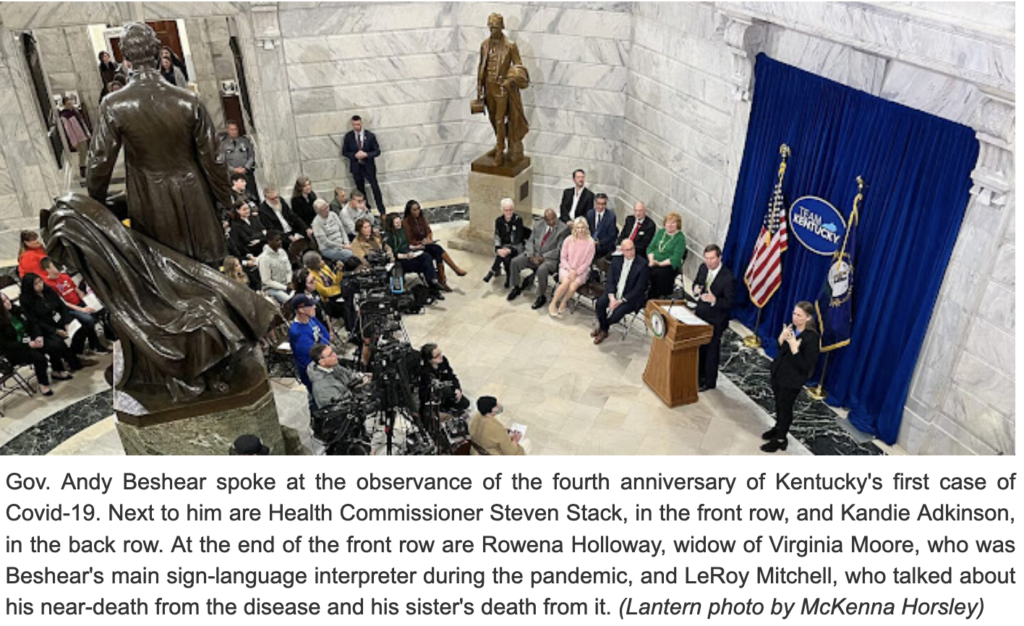On 4th anniversary of Ky.’s first Covid-19 case, Beshear says it’s a time ‘to say that we’re going to try to do better and better . . . ‘

By Sarah Ladd
Kentucky Lantern
Four years after the day that Kentucky confirmed its first official case of Covid-19, Kandie Adkinson rang a singular bell in the state Capitol rotunda, its chime echoing through the marbled halls.
She did this to honor those lost to Covid-19, just as she did during much of the pandemic.
Adkinson was joined Wednesday by Gov. Andy Beshear and others who gathered in the rotunda to mark the day with grief for those lost to the virus and hope for the future.
In the last four years, nearly 20,000 Kentuckians have died with Covid-19. Many more contracted the illness and survived, like LeRoy Mitchell.
“Most of us know somebody that died because of Covid,” said Mitchell, who drives a bus for the Clark County school system.
His sister died with the virus on Sep. 5, 2020.
“If losing my sister was not devastating enough for me and my family,” he said, “four months later, Covid came for me in the worst kind of way.”
His wife discovered him on Jan. 8, 2021, he said. He was unresponsive and sent to the Clark County Regional Medical Center via ambulance then by helicopter to the University of Kentucky hospital’s intensive care unit in Lexington.
When he got there, he said, he “had no time to spare.” His doctors later told him Covid-19 had caused his diabetic coma and the blood clot in his lung, and was “trying to shut down my kidneys.”
He went on oxygen and spent three weeks in the hospital, followed by rehabilitation for two weeks. He grew weak in the hospital, losing 50 pounds during his ordeal.
“I … basically went back to being like an infant, baby stage. I could not do anything for myself,” he said. His road to recovery — complete with a wheelchair, walker, oxygen tank and supportive wife — took eight months, he said.
Ultimately, Mitchell told those gathered Wednesday, “Covid lost. And I won with life.”
Beshear signed a proclamation Tuesday making March 6 a “Day of Compassion.”
In the future, he said, “we want to, as much as we can every year, not just talk about the loss — and loss is important — but also talk about what good can come out of it?”
“While we don’t face a pandemic, we still face challenges right now. And if we could just approach them with a little bit of the same, at least, attempt to understand each other and love each other, then this world could be a much better place.”
March 6 should be a time to reflect, he said, “where we always say that we’re going to try to do better and better and better as the years go by.”